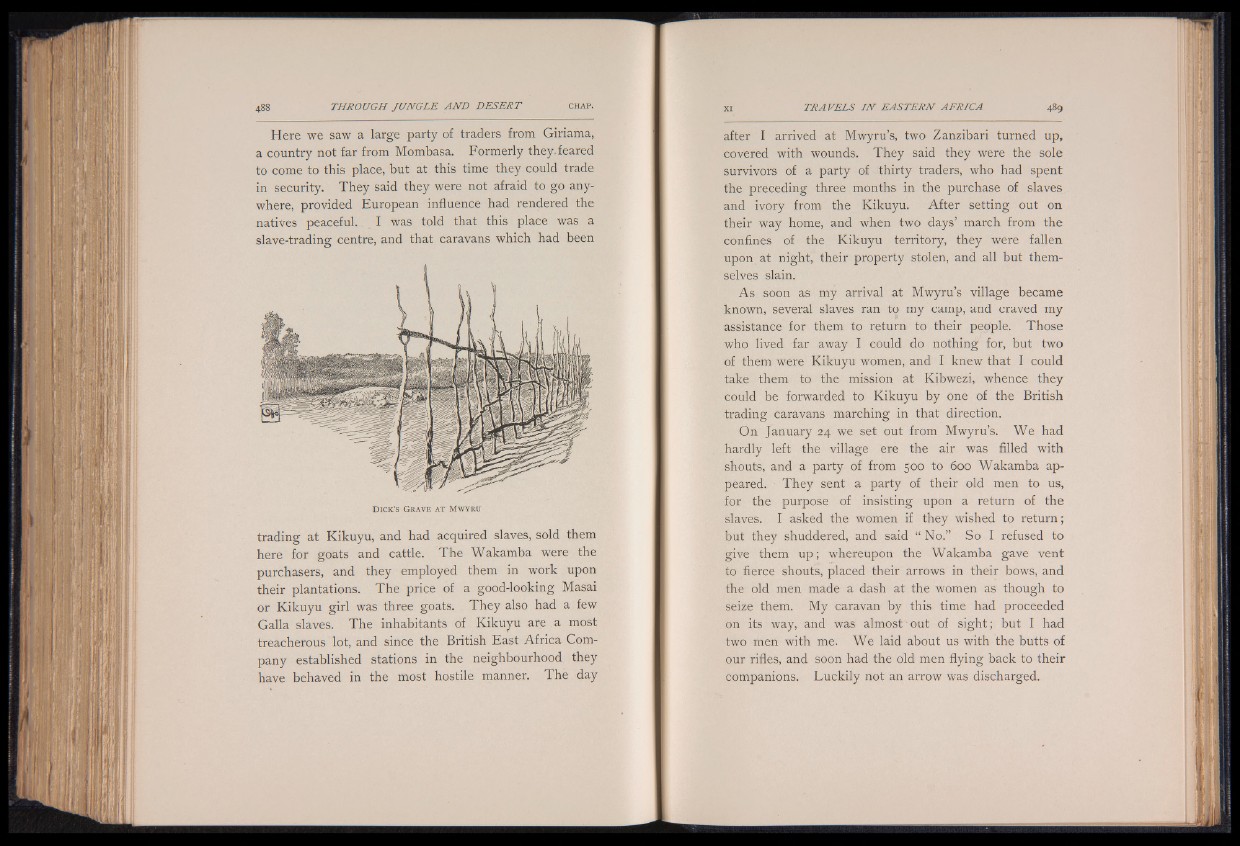
Here we saw a large party of traders from Giriama,
a country not far from Mombasa. Formerly they, feared
to come to this place, but at this time they could trade
in security. They said they were not afraid to go anywhere,
provided European influence had rendered the
natives peaceful. I was told that this place was a
slave-trading centre, and that caravans which had been
D i c k 's G r a v e a t M w y r u
trading at Kikuyu, and had acquired slaves, sold them
here for goats and cattle. The Wakamba were the
purchasers, and they employed them in work upon
their plantations. The price of a good-looking Masai
or Kikuyu girl was three goats. They also had a few
Galla slaves. The inhabitants of Kikuyu are a most
treacherous lot, and since the British East Africa Company
established stations in the neighbourhood they
have behaved in the most hostile manner. The day
after I arrived at Mwyru’s, two Zanzibari turned up,
covered with wounds. They said they were the sole
survivors of a party of thirty traders, who had spent
the preceding three months in the purchase of slaves
and ivory from the Kikuyu. After setting out on
their way home, and when two days’ march from the
coniines of the Kikuyu territory, they were fallen
upon at night, their property stolen, and all but themselves
slain.
As soon as my arrival at Mwyru’s village became
known, several slaves ran to my camp, and craved my
assistance for them to return to their people. Those
who lived far away I could do nothing for, but two
of them were Kikuyu women, and I knew that I could
take them to the mission at Kibwezi, whence they
could be forwarded to Kikuyu by one of the British
trading caravans marching in that direction.
On January 24 we set out from Mwyru’s. We had
hardly left the village ere the air was filled with
shouts, and a party of from 500 to 600 Wakamba appeared.
They sent a party of their old men to us,
for the purpose of insisting upon a return of the
slaves. I asked the women if they wished to return;
but they shuddered, and said “ No.” So I refused to
give them up; whereupon the Wakamba gave vent
to fierce shouts, placed their arrows in their bows, and
the old men made a dash at the women as though to
seize them. My caravan by this time had proceeded
on its way, and was almost out of sight; but I had
two men with me. We laid about us with the butts of
our rifles, and soon had the old men flying back to their
companions. Luckily not an arrow was discharged.